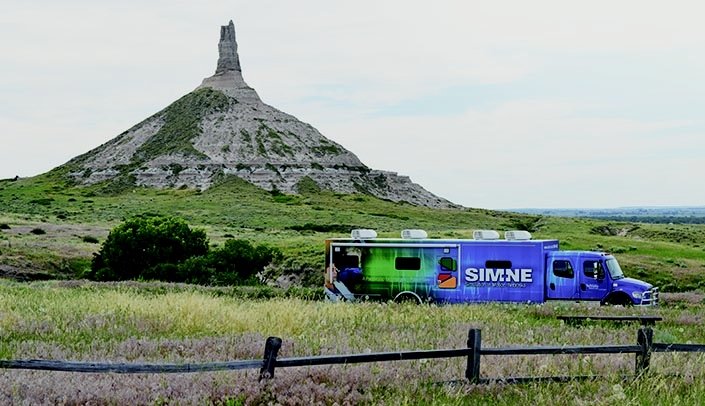UNMC’s Rural Health 2030 Task Force has released its “Rural Health 2030: 2018-2019 Action Plan.” The plan details how UNMC, its partners, and rural Nebraskans can together shape a new vision for a healthy rural future.
Goals
Goals identified in the plan are:
- Support rural health care providers to address disruptive change and to thrive in their practices.
- Enhance current or develop new education and training programs that enhance rural health workforce preparation and distribution, and also address the diversity in the state’s changing demographics.
- Support the utilization of emerging technologies in rural Nebraska to expand the accessibility of health education, outreach, care and research.
- Expand telehealth opportunities in rural Nebraska.
- More closely collaborate with health education and delivery systems that provide rural health training programs.
- Maximize UNMC’s organizational structure to facilitate open communication, coordination, and collaboration regarding rural health issues.
The plan also identifies action items for the 2018-19 fiscal year to help accomplish the goals.
“UNMC has been a trailblazer in many areas of rural health, dating back through its history,” said Bob Bartee, who chaired the Rural Health 2030 Task Force. “The action plan gives us a blueprint to continue to positively impact the health and wellness of Nebraska’s rural residents.”
“These goals are important and achievable,” said Nicole Carritt, who has been appointed to lead the coordination of this plan and related initiatives at UNMC. “As our rural stakeholders and partners review the action plan and provide their feedback, we can both refine these goals and begin to implement the recommended action items to improve health outcomes in rural Nebraska together.”
The Rural Health 2030 Task Force’s goal is to assess and revitalize the collaborative vision and strategy necessary to address the disruptive change that will continue to impact rural Nebraska’s health workforce, patient care, health education, technology and research.
The action plan identifies timely priorities related to rural education and workforce preparation, rural health education and delivery models, the use of emerging technologies, rural health research, and maximizing our organizational structure to guide such action.
Marty Fattig, CEO of Nemaha County Hospital in Auburn, said he believes that there will be “tremendous disruption in the delivery of health care across the nation in the next few years,” and having a plan in place will help in dealing with the significant changes ahead.
“The challenge in rural areas is to determine how we can continue to provide high-quality health care to our residents in the midst of this disruption,” Fattig said. “This plan addresses issues that are important to those of us providing rural health care, and UNMC is the perfect organization to lead this effort. UNMC has a presence across the entire state, which helps them understand the challenges faced by rural health care providers.
“UNMC also is training the next generation of health care professionals so they will have the opportunity to discuss the challenges and rewards of working in a rural area, and the goals of this plan, with these students before they graduate.”
The plan was developed to move the “Rural Health in 2030” report that was released in October 2017 into action. That report was an initial step in beginning a dialogue with rural stakeholders and others. To compile the report, UNMC leaders traveled the state, meeting with rural community leaders and rural stakeholders, including health providers, higher education and K-12 communities. UNMC also sought opinions from other state and local agencies, institutions and organizations in order to seek input on emerging rural health issues and to derive new solutions to anticipate these trends.
The task force is accepting feedback on the plan. As the plan moves toward implementation, information and opportunities, including information on the 2019 Rural Health Summit, will be detailed and shared.
